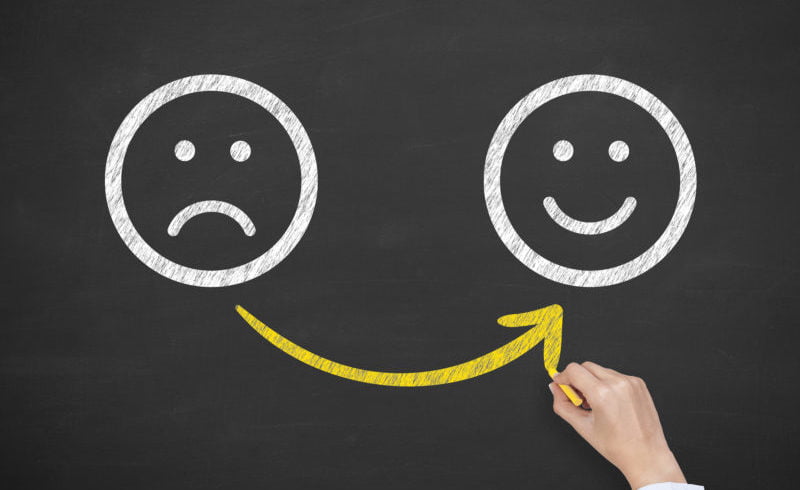
satisfied students are more likely to persevere within the face of demanding situations, and much more likely on the way to join the dots among specific ideas. happy instructors also are extra powerful, says Emma Seppälä, author of The Happiness tune: how to practice the technological know-how of Happiness to boost up Your achievement (HarperOne). however we all know that students and educatorsthese days face such a lot of stressors, like nation-mandated excessive-stakes checks that causetension, self-complaint, and disappointment. In a current interview with NEAToday, Seppälä describesfake myths of achievement and what educators can do to foster happiness within the study room.
allow’s talk approximately the fake idea of achievement that asserts you may’t have achievement with out pressure, that suffering is inevitable and even important to obtain success within the international. It appears very applicable to classroom lifestyle today. How can teachers nowadays meet the needs on them and their college students—with out definitely harming the fitness in their college students?
Emma Seppälä: research shows that when we’re in a combat-or-flight situation—you have a test, or aassignment due—a bit stress can definitely assist you get via that closing date. In that state of affairs, it’s like a little rush of adrenaline that offers us a little more push. however when pressure is continual,whilst it turns into combat-or-flight every day, it could virtually smash you down and cause depletion. You’ll see children who can’t calm themselves down, who can’t even doze off—and sleep is one of themaximum natural capabilities of our bodies.
One aspect we’ve seen to be very useful in classrooms are mindfulness programs for college students,along with respiratory sporting events. those are programs that could educate children to tap into their parasympathetic “relaxation and digest” worried system and calm right down. The respiratoryapplications, particularly, are easy and really easy to put into effect—and research has proven that the ones college students are more focused and much less impulsive.
two other false theories of fulfillment, which appear a bit associated, are: “attention to your niche,” which indicates we need to consciousness on simply one region of knowledge to be triumphant, andadditionally “play to your strengths,” which shows staying far from regions of weaknesses. In a lecture room, that could sound loads like, “I’m now not properly at math…” How can educators speak tostudents approximately their brains, and their strengths or weaknesses?
ES: They have to let them know that their brains are constructed to study new things. by studying thatreality, they’ll understand their brains can study anything, if they are trying. research shows this message clearly makes college students more enthusiastic inside the face of demanding situations… Stanford university’s Carol Dweck also has proven how figuring out youngsters by using “strengths,”pronouncing he’s an artist or she’s a math person, bins them in and in fact makes them much lessprobably to want to try new things or tackle new demanding situations. alternatively, the message tocollege students must be: this is your adventure. you could include the journey.
et’s communicate about creativity. in the ebook, you propose permitting your thoughts to float, to idle, to unplug. How do you watched that might be efficaciously practiced in a school room?
ES: CEOs currently price creativity extra than every other trait in the incoming group of workers, and yetwe’re experiencing a real creativity disaster inside the school room. within the book, I have a look at Dr. Kyung-Hee Kim’s studies, which indicates that creativity stays static or declines after 6th grade, and thatconsidering 1990 there has been a consistent decline in creativity ratings. sadly, most of the checksthat teachers ought to work towards price extra narrow thinking, or linear questioning, over divergentwondering, or creative thinking. there’s not anything wrong with linear questioning, but there needs to be space created for that kind of disruptive, brainstorming sort of creative wondering… like an improv comedy magnificence!
So, how about instructors? It’s a pretty traumatic activity. Are there matters they are able to do for themselves to make themselves happier?
ES:human beings are happier at work when they have a experience of purpose and meaning, andteachers truely can tap into numerous purpose and meaning of their work. however many instructorsare burdened out by means of having to work in the direction of trying out, in preference to what they’das an alternative do intrinsically, that’s paintings to inspire college students. One issue they can do iscope with their personal minds; take a mindfulness approach to lowering their very own strain. the opposite aspect they can do is take a extra empathic, compassionate technique to their students. it cansound soft, but there may be so much facts to again this up. If teachers can technique their students as they might their very own kids, with loving interest, their personal health and well-being will improve.


